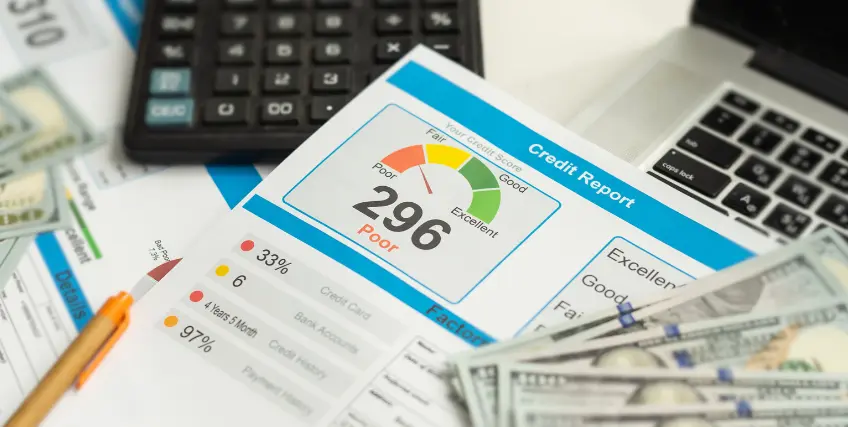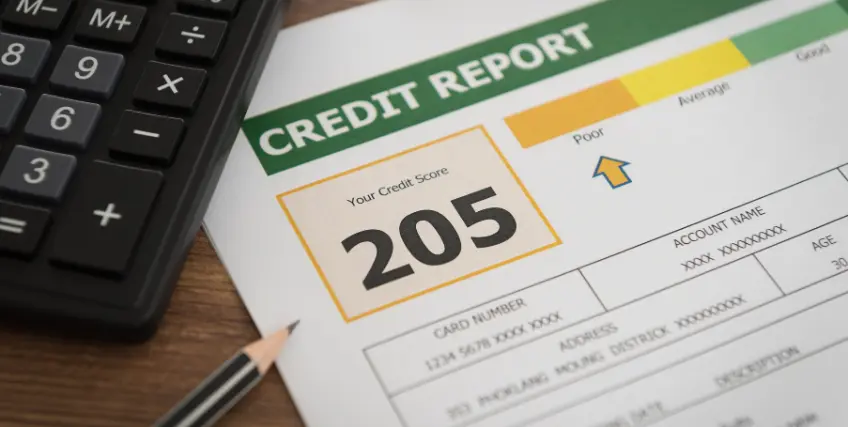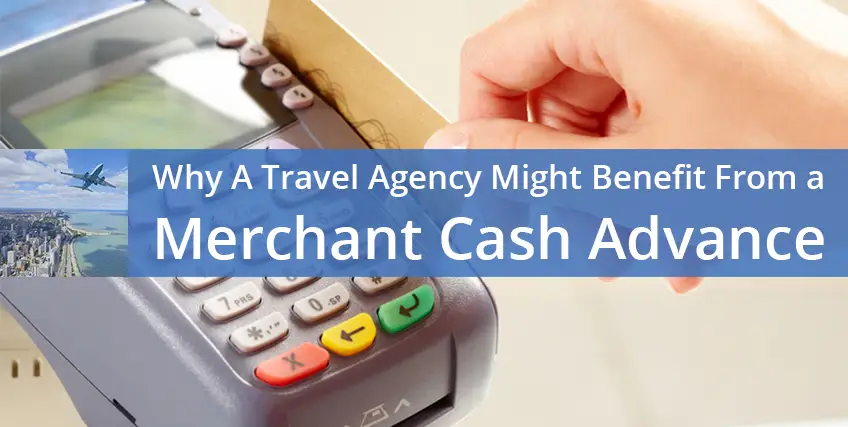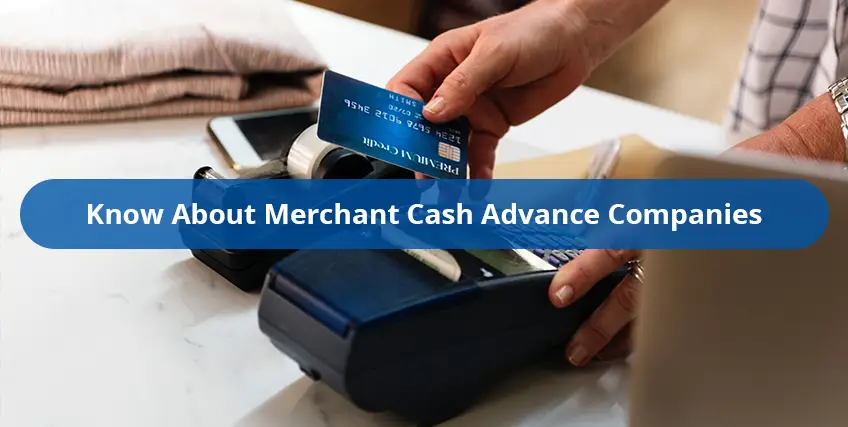7 Things to Know About Merchant Cash Advance Companies
January 08, 2025 | Last Updated on: January 08, 2025

Merchant cash advances (MCAs) can be useful resources for small businesses in need of fast funding. However, just like with any other financing, it’s important to understand all the steps involved and how to choose the right funding provider. While there are many legitimate, honest services out there, unfortunately some may take advantage of business owners with confusing agreements or lack of transparency. Which is why it’s important to understand how to separate the good merchant cash advance companies from the bad.
In this article:
- Learn exactly what a merchant cash advance (MCA) is and why some entrepreneurs choose this type of business financing.
- Explore the potential benefits and risks to this type of financing.
- Examine the most important aspects and tactics of merchant cash advance companies your business should know.
1. How Merchant Cash Advances Work
Merchant cash advances are relatively straightforward in premise: A company provides a business with an upfront lump sum of cash, and in exchange, that business provides them with a portion of their future credit card sales or other business receipts.
However, MCAs often need to be clarified once you start looking at terms. Merchant cash advances are different from loans. When you take out a business loan, you will have a set repayment schedule, usually with fixed monthly payments. When you get a merchant cash advance, however, you’ll make monthly, weekly, or even daily payments out of your earnings until the advance is paid in full.
With loans, you’ll agree to an interest rate. With MCAs, you will instead be charged according to a factor rate – which, on average, ranges between 1.2 and 1.5, based on your qualifications. For example, if you take a merchant cash advance of $100,000 with a factor rate of 1.5, you’ll have to repay $100,000 x 1.5 = $150,000. The two means of reimbursing a merchant cash advance are through the provide either:
- Taking a regular percentage of your credit and debit card sales.
- Taking fixed withdrawals based upon your expected earnings.
Even the best merchant cash advance companies will likely charge a factor rate that exceeds traditional interest rates. That’s why it’s crucial to understand how merchant cash advances work.
2. Merchant Cash Advances Are Quick
MCAs are much faster than other business funding routes. In fact, from the application process to funding, they’re often fulfilled in less than a week. That makes them beneficial for businesses in desperate need of capital. Regarding merchant cash advance pros and cons, fast financing is one of the main pros.
When assessing a business to decide whether they want to issue a loan, merchant cash advance providers typically look at daily credit card receipts or daily operational receipts to determine whether or not a business will be able to repay the advance. Even business owners with bad credit or lacking business credit can get a merchant cash advance loan.
3. Merchant Cash Advances Are Unsecured
Most traditional loans are secured, meaning you have to put up collateral, like business assets or personal assets, like a home or car, to protect the lender. If you fail to repay the loan, the lender can take your collateral.
The best merchant cash advance companies don’t require collateral. But this comes with a catch. The cost of capital, as we’ll detail soon, can be outrageous. Not only that, but some merchant cash advance companies may require a personal guarantee, putting your personal assets on the hook if you don’t pay the MCA provider back. Always review agreements with a lawyer and read merchant cash advance company reviews before signing anything.
4. They Can Be Tied to Your Sales
One of the key points to how merchant cash advances work is that they tend to be tied to your monthly credit card sales. In such cases, the lender takes a percentage of your income each day, week, or month. This can be beneficial if your sales start to stall since your payments won’t be monthly fixed amounts, as they would be with a typical loan. However, if a merchant cash advance loan helps your business take off, you’ll pay a lot in the short term until you pay the advance back.
5. The Cost of Capital Can Be High
Merchant cash advances are usually a last resort option for cash-strapped businesses. However, they’re becoming more popular these days, especially with business owners who struggle to secure financing from traditional lenders.
The best merchant cash advance companies have more flexibility than traditional lenders, but this added flexibility can sometimes come with a price. The funder might charge expensive factor rates if the business’s qualifications are not pristine. If you’re paying a high factor rate from a less reputable funding company and your sales are great, the effective interest rates can reach triple digits. That’s much more than traditional financing options like term loans.
Small business owners must understand how merchant cash advances work when choosing a company, as it can drastically change the cost-effectiveness of the capital they receive. Additionally, with an MCA, there is usually no benefit to paying off your balance early. Unlike with many loans with which you can save interest by paying early, the factoring amount you agree to is the amount you’ll pay, regardless of when you decide to pay off the amount owed.
6. Merchant Cash Advances are Less Regulated
Although they sound like loans, merchant cash advances are not legally classified as loans. Eligibility requirements are different, repayment terms are different, as is the way you pay based on receivables rather than a fixed monthly payment.
These types of business cash advances are not subject to the same federal regulations as loans. This decreases both your protections and the requirements placed on providers by regulators. However, the best merchant cash advance companies regulate themselves to provide positive experiences for small business owners. Nonetheless, it’s always important to read merchant cash advance company reviews and understand merchant cash advance pros and cons before getting one for your business.
7. There Are Many Alternatives Today
Fast funding is the biggest advantage to merchant cash advances in the past. From startups to struggling small business owners, many types of businesses can get a fast cash infusion to their business bank accounts.
However, there are many viable alternatives today. Some of the best funding options include:
- Business lines of credit: A lender uses your credit history to determine a maximum revolving credit line for your business that you can draw on to make business purchases. Unlike a loan, you only pay interest on the amount you use rather than the total funding amount.
- Business credit cards: With business credit cards, you can make business purchases and repay the credit when more cash flow comes in, allowing you to avoid interest charges.
- Invoice factoring: In an invoice factoring arrangement, you sell your unpaid invoices to a third party for upfront cash in exchange for additional fees. (There’s no credit score requirement on this one.)
- Alternative lenders: There are many reputable that offer small business loan products tailored to suit your business’s needs.
- US. Small Business Administration (SBA) loans: Loans that are partially backed by the SBA are more difficult to qualify for, but allow small business owners to avoid significant personal risks. The SBA offers both long-term and short-term products, like working capital loans, microloans, and lines of credit.
Conclusion
As with any type of financing, you must give due diligence to any contract or agreement you are considering. Today’s market offers multiple opportunities for borrowing, and your business can benefit from choosing the right one. That might be a merchant cash advance, and it might not. Understand your business’s needs, learn your loan options, and do your research. When you get financing that works, whether via an MCA or otherwise, your business can not just survive; it can thrive.
FAQs
What is a merchant cash advance company?
A merchant cash advance (MCA) company is one that specializes in providing business cash advances to be paid back through future credit card sales and other business receipts.
How fast can you get money with an MCA?
The main advantage of this type of funding is that it’s quick. Some companies offer same-day funding, while most can provide funding in less than a week.
What are the pros and cons of MCAs?
The primary benefits of MCAs are that they offer fast small business financing (sometimes in as little as one business day) and have lower eligibility requirements than traditional loans. The drawbacks, however, are that they can have very confusing and punitive agreements and be very expensive in the long run.
What are the best merchant cash advance companies?
The best MCA provider is one that works for your business needs. Always read agreements thoroughly and check out merchant cash advance company reviews before making a decision.
What are some alternatives to an MCA?
Some of the best alternatives to an MCA include business lines of credit, business credit cards, invoice factoring, or exploring loan products from alternative lenders.
Frequent searches leading to this page
small cash advances, quick loan, business loan small, small business lenders, mca loan
Recent Articles
Related Articles

Can You Renegotiate Terms on MCA Cash Financing After a Default? What Business Owners Need to Know
November 27, 2024

Business Loan or Merchant Loan? Understanding Loan Options for Your Business
November 25, 2024

Avoiding the Debt Trap: How Stacking MCA Business Financing Can Hurt Your Business Credit
November 7, 2024

Why MCA Business Funding May Be Ideal for Retailers Looking to Expand Inventory
November 5, 2024

Merchant Cash Advance vs. Asset-Based Lending: Which is Right for Your Business?
January 10, 2025

Merchant Cash Advance vs. Traditional Business Loans: Which is Right for Your Business?
January 10, 2025

Merchant Cash Advance vs. Line of Credit: Which is Right for Your Business?
January 9, 2025

5 Things Every Small Business Owner Wishes They Had Known When They Started
January 9, 2025

































